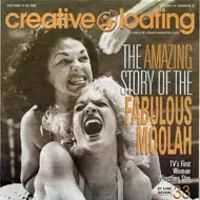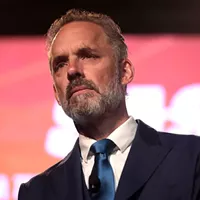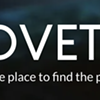Not since Vietnam has the "love it or leave it" mentality of some Americans been so at odds with those who question government policies. And just like during the Vietnam era, people are challenging the charge that folks who question the President and his polices are any less patriotic than those who support the war.
Todd Gitlin, an author and professor of journalism and sociology at Columbia University, wrote in a recent article entitled "Patriotism Demands Questioning Authority," ". . .questioning is precisely what authority needs. In a democracy, authority needs to convince those it governs. To be convincing, it must be willing and able to defend itself, even - especially -- when pointed questions are asked."
Many who oppose various government policies, from conservatives calling for smaller government, to liberals who want to help the poor, do so out of a genuine sense that their beliefs will make the US a better country -- in other words, they're concerned about the well-being of the nation. . . as in, "patriotic."
These days, the same goes for opponents of the war in Iraq. Critics are quick to point out that their vocal opposition stems from what they see as this particular war's corrosive effect on America. To critics of the war and Bush administration foreign policy say it's not only their right, but their duty as Americans to stand up and speak out if they feel an injustice is being committed -- even if that injustice is being committed by their President. After all, the United States itself was launched by our willingness to not only question, but challenge and ultimately overthrow authority. That freedom of debate and opinion is what the Fourth of July is all about.
We spoke to some Charlotteans who have been outspoken in their opposition to the war to see how they define patriotism, and how it fits into their current views.
A. Malcolm Campbell, Ph.D., Associate Professor of Biology, Davidson College. Campbell organized and led student discussion groups following 9/11.
Patriotism isn't following your leader regardless of what the leaders say. That's more like a dictatorship or a monarchy. Patriotism is standing up for what you believe in, and supporting your country. In a democracy, by definition, you're supposed to have opposing views.
It's pretty shocking when people accuse me of hating America because of my views toward the war. When I hear people make those accusations, it has to be out of personal fear or anger. We're not calling American troops baby killers like some people did with Vietnam. We're not blaming the troops, we're blaming the policies that they're being forced to abide.
At one point it was unpatriotic to oppose the Vietnam War and then it became the majority. I would have to believe that people who supported the war before we invaded Iraq have to feel differently now, given the fact that were no WMDs. Everyone is basically saying we made a mistake. So to say I opposed the war then and I oppose it now is not the same as saying I want our troops to get hurt. I don't want the Iraqi people to get to hurt, either. Does that make me unpatriotic? I don't think so. It seems to me that any country that wants to be a shining beacon should be able to say we made a mistake.
Rev. Chris Ayers, Pastor at Wedgewood Baptist Church. Ayers has participated in actions to protest the Iraq war.
I think patriotism is wanting a country to live up to its best virtues and qualities. Anytime an American calls others to do that, then I think that's being patriotic. We live in a country where we frankly have the right and obligation to critique each other and our policies.
Unfortunately, many of us put our nation before the world. We need to have a world vision as a people of God. Blind patriotism is dangerous. What scares me about President Bush is that he's become a bully to the world. When I was in first grade we had a bully in the class. And we found the best way to deal with the bully was as a group. But we also became aware that in dealing with a bully we also became bullies. It seems to me that's what's happened with the US in dealing with Saddam Hussein.
We're a politically divided country. From a Christian church standpoint, we're pretty divided as well. We have a lot of different value systems going on. The value system I represent is one that celebrates diversity and is concerned about the poorest of the poor and justice. We have quite a few gay and lesbian people in our congregation. We tend to attract a lot of people who the Bush administration would say are not patriotic. But I would say these people are not only good Americans, but even more importantly, wonderful Christians.
Everyone says we've got to support the military. Well of course we do. The way I support the military is to pray for their safety and that we end aggression that is leading to so many deaths in vain. If any one thinks that after we hand over power and leave Iraq that democracy is going to survive, I think they're misguided. I think some kind of theocracy will arise, and it will not be pretty.
Shelia Bumgarner, Member of the local Quaker organization Charlotte Friends Meeting.
The first two words in the dictionary beside the word patriotism are "devoted love," followed by "support and defend one's country." For me, patriotism doesn't arise only when there is a war. My patriotism is based on love and support for my country because I know the history of America and its people. Quakers seek to find God in everyone. This type of love is hard to explain and even harder for others to accept, but it spiritually removes the desire to harm anyone. We believe that this is what God calls us to do. Quakers have been imprisoned and have died for this belief. I have heard that my beliefs are unrealistic as well as unpatriotic. But true peace has to start somewhere. It is not un-American to want the best for your country, and I will defend (peacefully) anyone wishing to express truth even if it is differs from the main point of view.
Nationalism is a dangerous mindset. Countries that follow this path have fallen to ruin. The reasons for entering Iraq were based on lies, and nothing good ever came from a lie. However, I pray that all our troops will be safe and that the people of Iraq can peacefully build a democratic society. If the latter happens, the success will bring the nation closer. However, if it fails, I'm afraid it will just be a blip in the larger historical picture and add to the apathy that already plagues our society. When we stop questioning our government and our elected officials, we have ceased to be Americans.
Jonathan Berkey, Professor of History at Davidson (in particular, Middle East/Islamic history).
Patriotism, as Samuel Johnson once remarked, is the last refuge of a scoundrel. Johnson's point, of course, was not that patriotism is bad, but that bad people put it to use. Politicians use it, for example, to obscure or deflect attention from their failed policies, and to undermine the critical thought and civic engagement that is necessary to a functioning democracy.
Johnson lived and wrote in the 18th century, but his words perfectly describe the use of patriotism by the Bush administration and others who would equate patriotism with a blind adherence to an arrogant and misguided government. Is patriotism about American power, or American principles and values? The answer should be clear. There is nothing special, nothing peculiarly "American" about the exercise of power by the American government in Iraq -- there is nothing in it, in other words, to excite the imagination and pride of a patriot.
Mari Cohen, Davidson College student.
Having grown up in Washington, DC, in a politically active family, ideas about patriotism have been thrown around as long as I can remember. I always had a picture of a patriotic person as someone proudly waving their American Flag and smiling while watching the fireworks at the Washington Monument on July 4th. It was about being proud of your country and its values, that you could go abroad and say you were from the United States and know that no matter the response, inside you were truly proud to be an American.
Because of the atrocities our country has committed over the past few years, patriotism has taken on a new meaning. I now see being patriotic as a duty -- that duty being to uphold the values on which this country was founded.
It is my right as a citizen of this country to be against that war and to voice that opinion. It is not as if I don't care about the troops that have been sent over there (quite the contrary). But I fundamentally do not agree with any aspect of this war, and believe that the president should be impeached for lying. If someone wants to call me anti-American for thinking this, I can't stop them; they are entitled to their opinion as well.
Meanwhile, the administration has tried to turn patriotism into nationalism. I fear that combining these two, and monitoring whether citizens are patriotic/nationalistic is the beginning of a dictatorship. I can't help but think about Hitler's takeover in Germany and I fear that this administration is callous enough to do the same type of damage (hopefully not on the same scale).
Edith Garwood, Charlotte Coordinator Palestine Media Watch.
Patriotism is not "my country right or wrong," nor is it supporting your leadership without question. I love this country: the independent, strong people, many aspects of our culture, such as our support of charities. But most of all I'm proud of our Constitution and our respect for the rule of law. Of course our government and people make mistakes, but the majority of us crave justice and therefore most of us respect and strive to maintain civil rights and the rule of law -- not help eat away at it with detrimental laws such as the USA Patriot Act.
The war on Iraq is not a football game. This "if you're not on our team you must be on their team" mentality pushed by this administration is extremely dangerous. A nation that begins to justify torture and other human rights abuses is no longer a nation I recognize. I believe it's this kind of blind following that led to the nationalistic extremes of Hitler, Mussolini, Pinochet, et al.
True American patriots learn their history, vote, keep up with current events (all relative issues local, national, international), and strive to protect our rule of law. These standards are what make our country the greatest, not our military might.
Wally Kluecker, Chair of Unitarian Universalist Church of Charlotte's Social Action Committee.
I think most people accept the word "patriotism" to mean "love of one's country." However, Samuel Johnson made the famous remark that "Patriotism is the last refuge of a scoundrel." I agree with Clarence Darrow, who said, "True patriotism hates injustice in its own land more than anywhere else."
The right of dissent is a fundamental human right, and it's important to note that it's the first right listed in our Bill of Rights -- the right of assembly, i.e., the right to meet in public, the right to protest. How can exercising a basic human right and a keystone of our country be regarded as anti-American? I used to hear during the Vietnam War those who shouted "Love It Or Leave It." But those who protested against that war loved their country and wanted to stop their fellow countrymen and women from dying in a senseless war. Over 58,000 Americans died in that war. Writer and novelist Barbara Ehrenreich said recently, "No matter that patriotism is too often the refuge of scoundrels. Dissent, rebellion, and all-around hell-raising remain the true duty of patriots."
The US Treasury estimates we lose $70 to $155 billion each year from American corporations taking advantage of offshore tax shelters. Are those American business leaders patriotic? Is lying to the American public about the necessity of invading Iraq, which has so far cost 839 American lives and 5138 Americans wounded, as George W. Bush did, patriotic?
Theodore Roosevelt was famous for his "Speak softly but carry a big stick." Bush has gone a step further: "Talk big and use a big stick." His so-called doctrine of pre-emptive strike is immoral, unethical, a radical departure from previous American policy, and is a fundamental challenge to world peace and stability.
It's hard to image how policies that have led to pre-emptive war, or the flagrant disregard for our Constitution and civil liberties as sanctioned by the Patriot Act, can possibly bring our country closer together.
Speaking of News_feature.html
-

When HIV comes home
Jul 20, 2005 -

Rasslin' Pioneers
Jul 13, 2005 -

Geddings on McCrory: "This guy is vulnerable"
Jul 6, 2005 - More »
Latest in News Feature
More by Sam Boykin
-

Divine evolution
Nov 11, 2015 -

The Agony & The Ecstasy
Jun 21, 2012 -

'Dynamite' diet with nutritionist Angela Gallo
Jan 18, 2011 - More »















